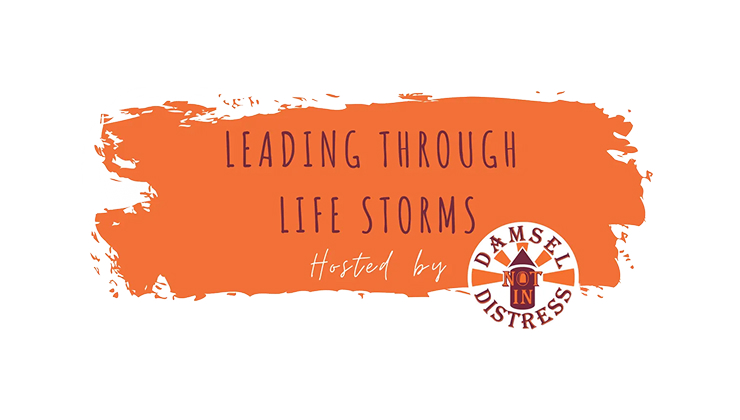Since initially writing this piece I’ve worked with a few thousand people in different ways on the mental health agenda. Are things better since I wrote this in 2022? The numbers are similar, there are still too many people unable to find a timely solution that will help them with their mental illness. More youngsters are becoming affected.
On the plus side there are pockets of innovation around things like social prescribing, friendship benches (Zimbabwe and New York), taking a lifestyle approach to conditions like depression and anxiety.
The majority of those I speak with would talk about capacity and the disconnect between supply and demand. This is compounded with the current challenges we face from the environment, conflicts, geopolitical trade wards. It seems everything around us goes at a faster pace and still we struggle to pause, to breathe, to ask ourselves just because we can doesn’t mean we need to.
Spending 1/3rd of our adult life at work – I wonder, with all the data, all the evidence, all our collective and individual experiences, when will we get the memo that says lifestyle choices, and inspiring working environments make a massive difference.
The cost to employers of Mental Health Sickness in the UK is £53 – £56 billion per annum according to the Deloitte Survey 2021.
41% of those in work surveyed by Mind in 2021 said mental health had worsened during the pandemic.
Research has highlighted 3 particularly vulnerable groups in the workplace; younger workers (18-29); those with caring responsibilities; keyworkers.
Grim data.
And are we looking in the right places to find solutions? I’m going to stick my neck out and say no, we are missing opportunities to make a real impact.
Firstly, we don’t really know what we mean by mental health. We generalise, rather than get specific about thoughts, feelings, emotions and sensations.
Secondly, we don’t include in the narrative of mental health the natural homeostasis of a human being. Our bodies give an abundance of clues that we often mis-interpret, or don’t really pay any attention to. The flight, flight, freeze response is a survival trait and variability in our mood and energy levels every day is OK.
Thirdly, we know that one of the most common causes of workplace burnout is overwhelm of workload. Which organisations are deliberately addressing the problem at source? It’s a capacity and work planning issue at a systemic level very often and not at the individual level.
Finally, we have moved to an instant society. We seldom pause for breath. We want our information immediately and don’t necessarily check out our sources. The clever algorithms that track our use of internet and scrolling in social media are great at showing us more of the content we have looked at. It doesn’t go “hey, you’ve looked from this perspective, now let me give you an alternative point of view”.
Let’s start by describing what we mean by the term mental health
Here’s the first conundrum. There is no agreed definition, and the term covers those who are very unwell with a condition affecting emotional, psychological functioning through to someone who is thriving. The problem then is hearing the term and not really knowing what it is referring to. We don’t have a language for the normal self-regulation and homeostasis that humans need to survive. It is part of our ability to adapt to change without a loss of wellbeing that means we experience variability every day.
During my childhood I grew up with parents who were emotionally restrained, did not talk about the normal ups and downs of life and felt getting on with it was the thing to do. Now, parents are more likely to explore feelings and emotions and schools have wellbeing on the curriculum in some places. However, there is still a disconnect between an understanding of what is a healthy variation one might experience during a day, a week, a year and what might be a significant challenge.
So even though young adults are appearing to speak more about the topic of mental health, they remain vulnerable. So where is the disconnect? It is as though they can speak and not act to build lifestyles that enable deep health. You can have a very different conversation when you talk about how you are feeling – I am feeling sad today – I’m feeling really frustrated with everything that’s going on. By naming the feeling you can then start to explore causation. A little person close to me recently exclaimed they felt anxious. Asked how they knew the answer was “my tummy is squishing about”. Exploring the episode, we realised that a parental label of anxiety linked to feeling squishy had started a set of connections which transpired to be incorrect. The reality was those feelings were anticipation of going to an exciting event. Instead of labels we can have a go at articulating the sensation. Just that simple act can change perception. The sensations are not good or bad, they are sensations. We don’t need to attribute mental health. More likely a physiological response to some stimulus. Ask yourself what am I feeling (physically and emotionally)? What am I thinking? Don’t judge – notice. Often that process itself will change the cycle. These micro moments are what self-regulation is all about.
We are brilliantly equipped for self-regulation, for adapting to change, and we are superbly flawed at the same time. Learning how to use the brilliant and wise part of ourselves changes the notion of mental health to something more tangible and actionable on. A healthy dose of self-compassion can stop the negative self-talk in its tracks. The loop of “failing” at something or something irritating you or making you sad, leads to feeling bad about yourself and most likely choosing unproductive coping mechanisms. Instead by being kind and sympathetic towards yourself you can shift that negative spiral. Stay in that loop and chances are it will be termed mental health.
Someone I know well has been alongside her nephew (fits in the young person demographic referred to earlier) for several years. He has among other conditions schizophrenia. Initially he was prescribed medication at a high dose. He is now free of medicine and living a good life. His ability to articulate how he feels has changed and can talk about the suicidal thoughts he has. One of the significant shifts in his care was learning to talk, to express, and to pay real attention to all aspects of health, a holistic approach. He had mental health challenges that were significant. Does he now have mental health? What does it even mean?
So, what do we do instead?
I’d rather we referred to health, of mind, body, and context. That we stopped this separation between mental health and the way we put ourselves through experiences that are detrimental to thriving. I’d like to see a focus on health, fitness, using our wisdom and presence to make good choices, building our capacity to live well. At risk of being labelled as a dinosaur I’d encourage re-connection to our bodies and how they work best, what they need to fulfil the obligations of daily life. I’d love to see people connecting in real time more.
Above all I’d like to find the language where we don’t get lazy and call everything mental health.
Instead, we name different emotions that we are experiencing, we acknowledge our tetchiness is due to a lack of sleep caused by concerns at work. That managers ask how someone’s capacity is to complete the workload or whether more resources are needed.
Increasingly we are gaining the evidence that supports radical rethinking of health care that embraces lifestyle rather than medicates to achieve it. People with significant challenges through depression, forms of psychosis, anxiety are learning to adapt their way of living to embrace health in a holistic way. The idea of meditation, being mindful, engaging in the great outdoors, these aren’t new age ideas. They are strategies to bring us to our fundamentals, our needs for a healthy survival and to allow the wisdom to thrive at this thing called life.
How is this connected to the workplace?
We often think of an organisation as an amorphous entity. Businesses are made of people who make decisions on behalf of multiple stakeholders. Where those individuals are not self-regulating well and there is a problem of capacity, the organisation cannot thrive. Unmanageable workloads continue to be the major cause of workplace stress. We have unrealistic expectations on our capacity at an organisation, team and individual level. We overcommit and then find it challenging to find the resources to meet the commitments. However, rarely do we hear conversations in the media that talk about our expectations at these multiple levels and how they contribute. It’s a demand and supply thing. We are obsessed with being seen to be doing something, being busy, dynamic, ‘getting stuff done’.
Don’t just do something, sit there.
In my work I get to talk with hundreds of people across the globe who share their hopes, aspirations, challenges, and fears. Two common themes emerge time and time again.
1 – The issue of capacity. Of not having enough time to do what’s needed to be done with the urgent things taking daily precedent to the important and long term. This creates a never-ending cycle of failing to catch up and constantly running. It means we stop looking after our health as a priority.
- Where is the recovery time?
- How well can you hold your boundaries, so you don’t get overwhelmed?
- Where is the time to plan your week’s meals or arrange the gym or to go for a run?
- What happens to sleep quality when you are always on?
- How do you connect with friends and family if you barely have time to get through the day? The impact for so many of my clients is moving towards burnout or needing time off through stress.
- What are the implications for a nation’s health?
2 – A need for instant results / information. Emails that you sense need an instant response; notifications on all your phone apps bleeping and pinging throughout the day; scrolling social media to follow a celebrity, a war, some news event.
- How do you choose what you are reading, or does an algorithm do it for you?
- How much time are you spending on following people you don’t know compared to the real people in your life?
- What sources are you trusting for information? Are they valid?
- How often do you turn off notifications or do you have a fear you will miss something vital?
- How often do you look at information coming into you from multiple perspectives?
If we consider that the world has been dealing with the physical, emotional, social, psychological, spiritual, and environmental impacts of the pandemic and recent food shortages, together with climate concerns, the time is now to get creative and shift what happens next. There is a good reason why so many health providers encourage taking time out, switching off, creating “life” recovery time. We have the capacity to be healthier and better equipped to adapt to the everyday changes that occur in our lives without facing a loss of wellbeing. It is our choice to make.
Our workplaces and business around the world needs to properly recognise they only exist because of the human beings employed within. By recognise I mean structurally, fundamentally and emotionally support their staff. Maybe we need to, at a societal level, step off the constant demand for ‘growth’. Why is growth only measured in increased profit or shareholder value? Why isn’t growth measured in staff wellbeing? Days lost to sickness? Retention levels? Happiness? Maybe business tax could be structured to reward these things? Better staff happiness, lower tax, increased profits, shareholder value? I’m going beyond my skillset but now is the time for radical rethinking.
What could we do in our workplaces with the £53-56 billion lost every year through mental health sickness?
If we are going to build something better for all of us let’s talk about suicide.




